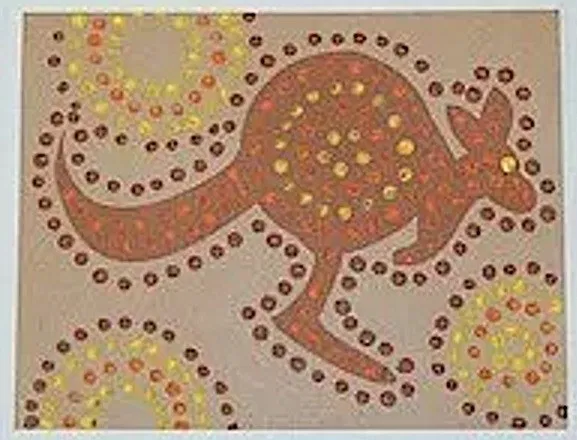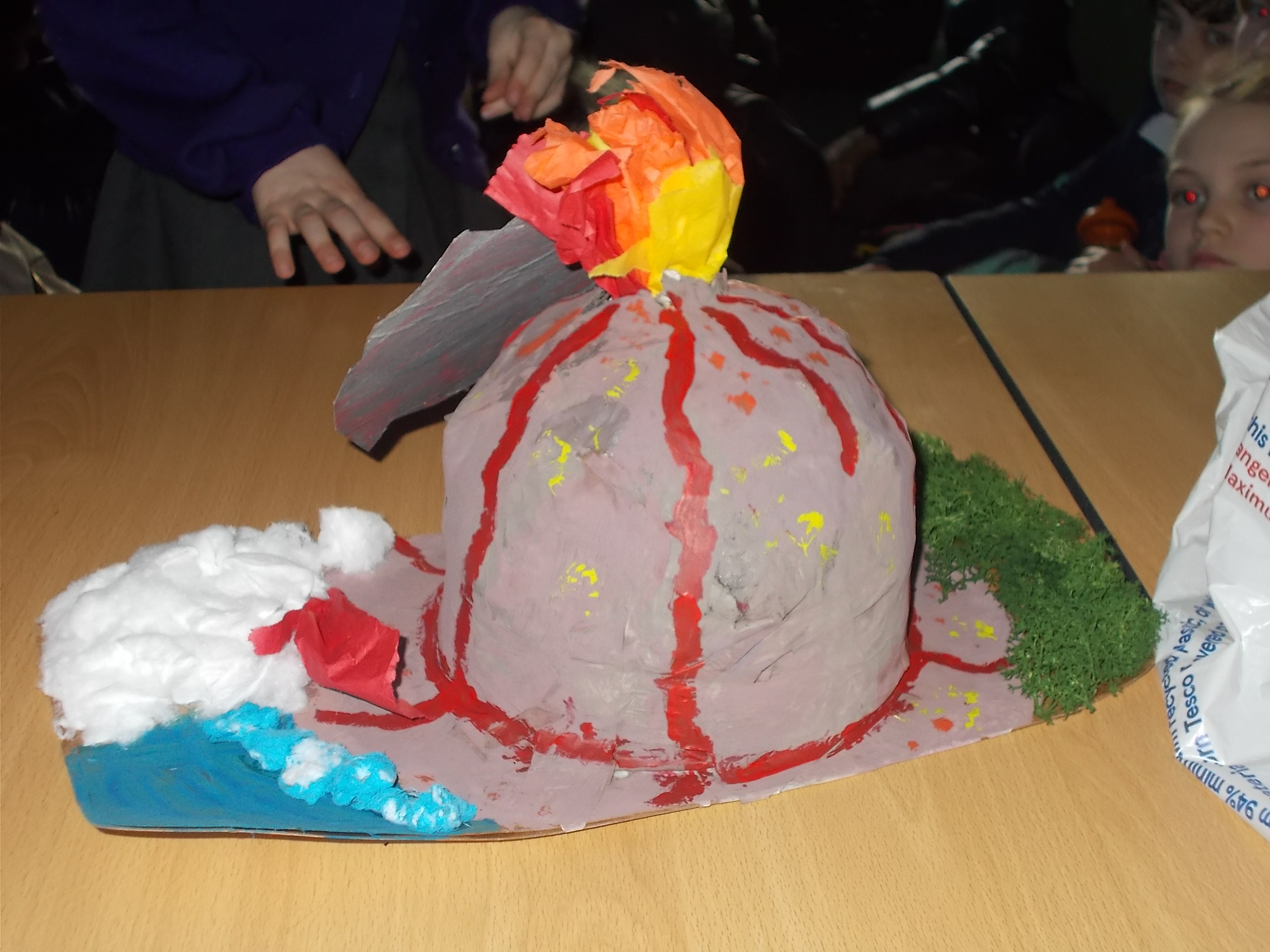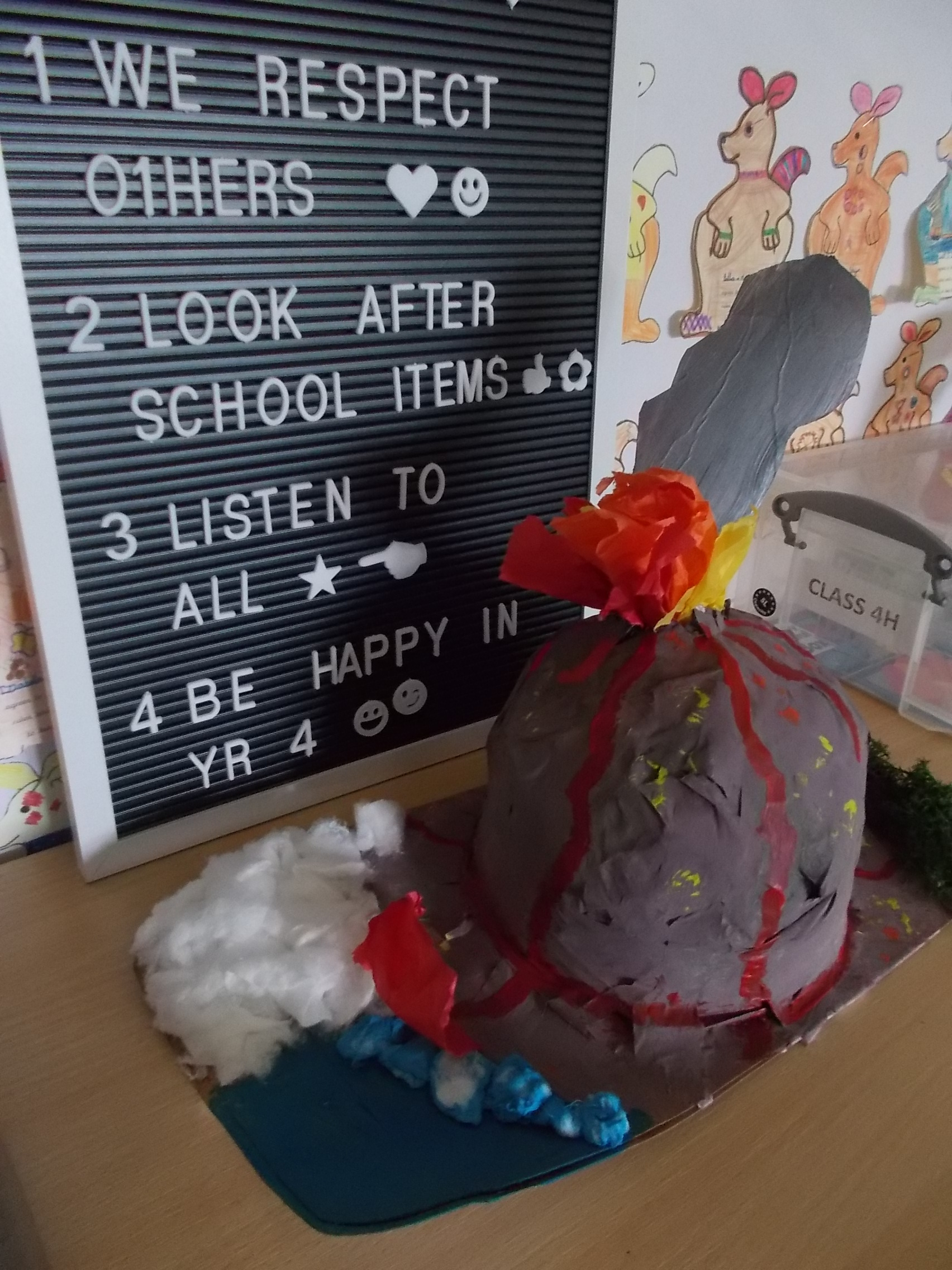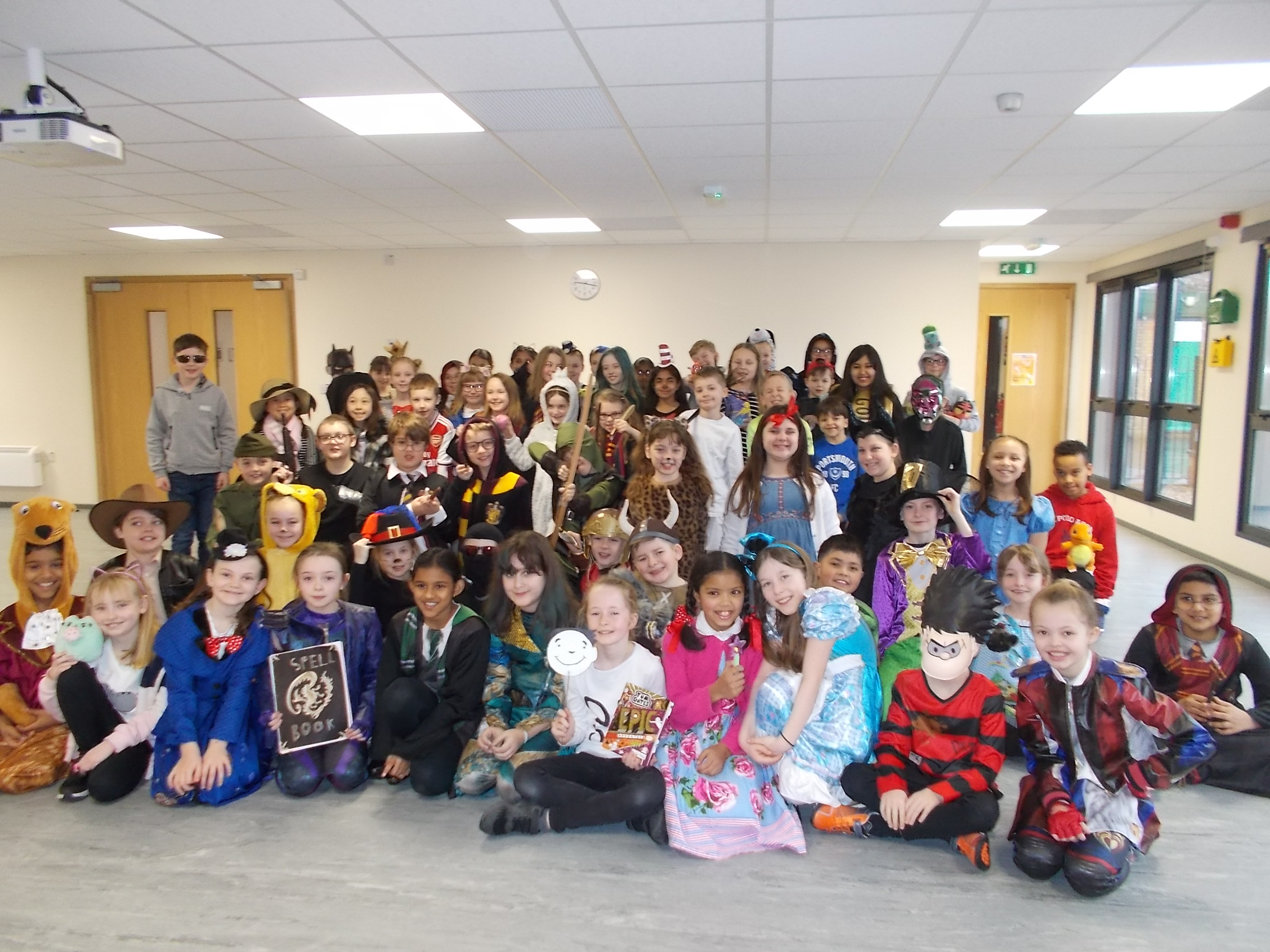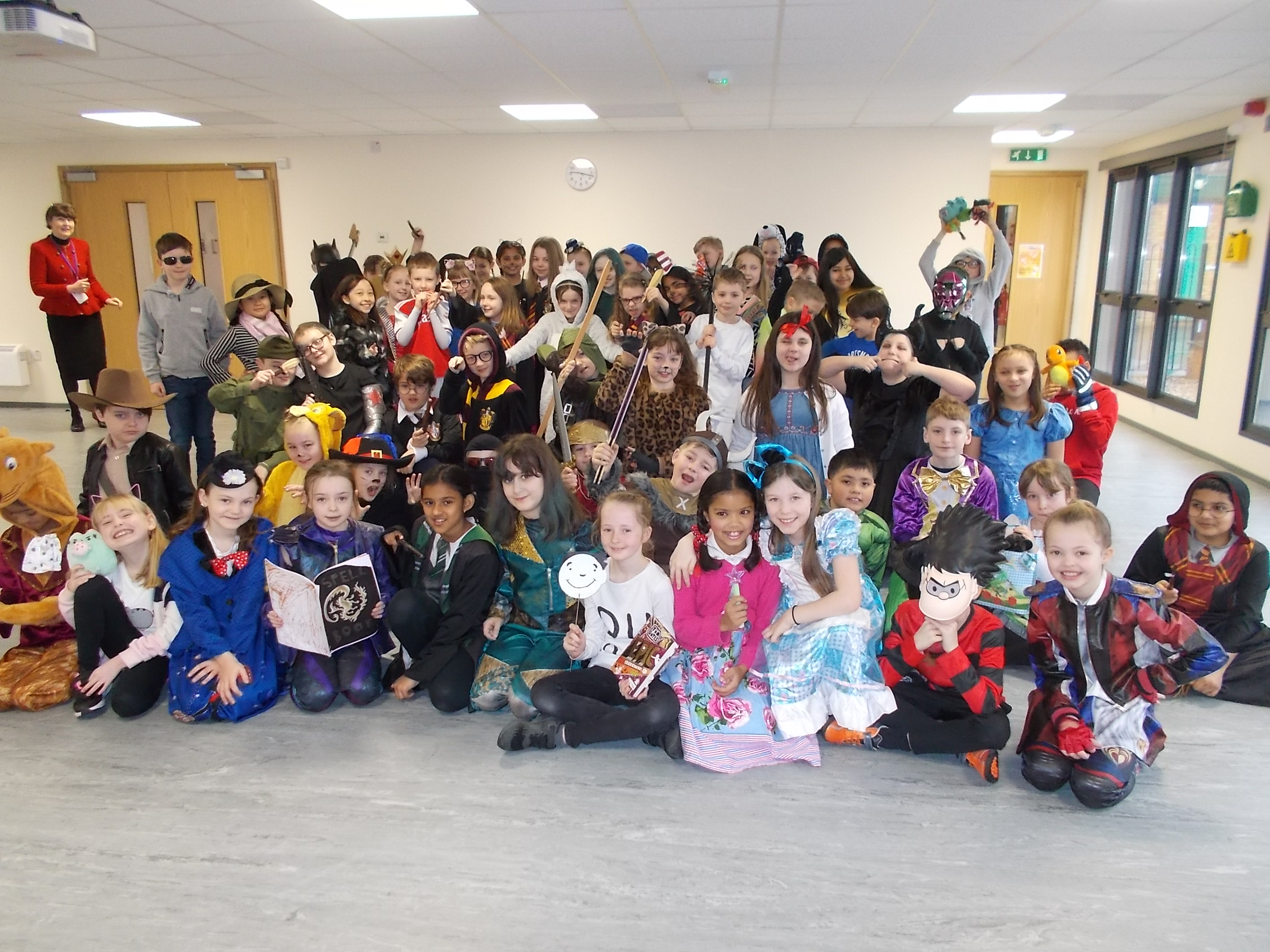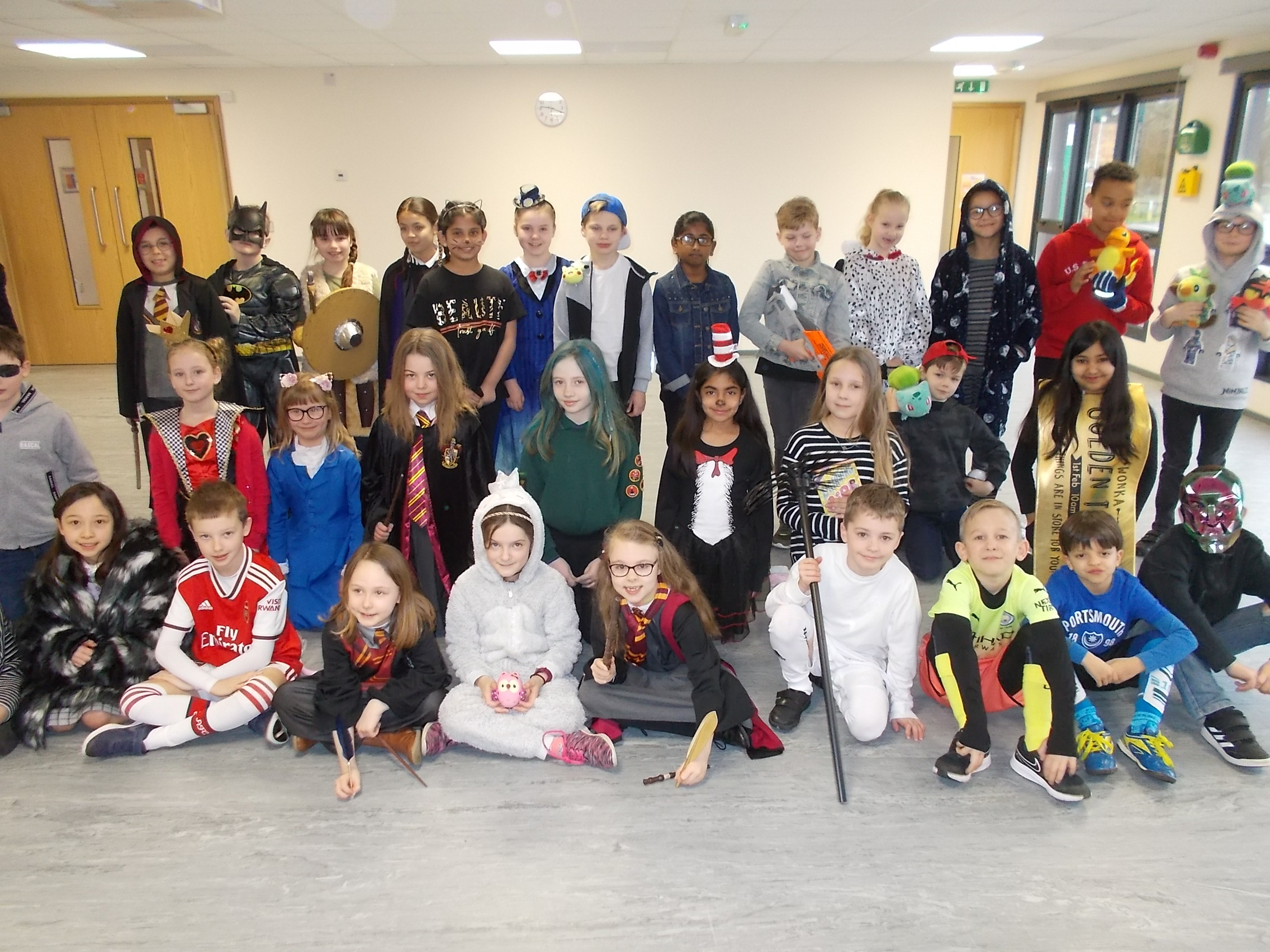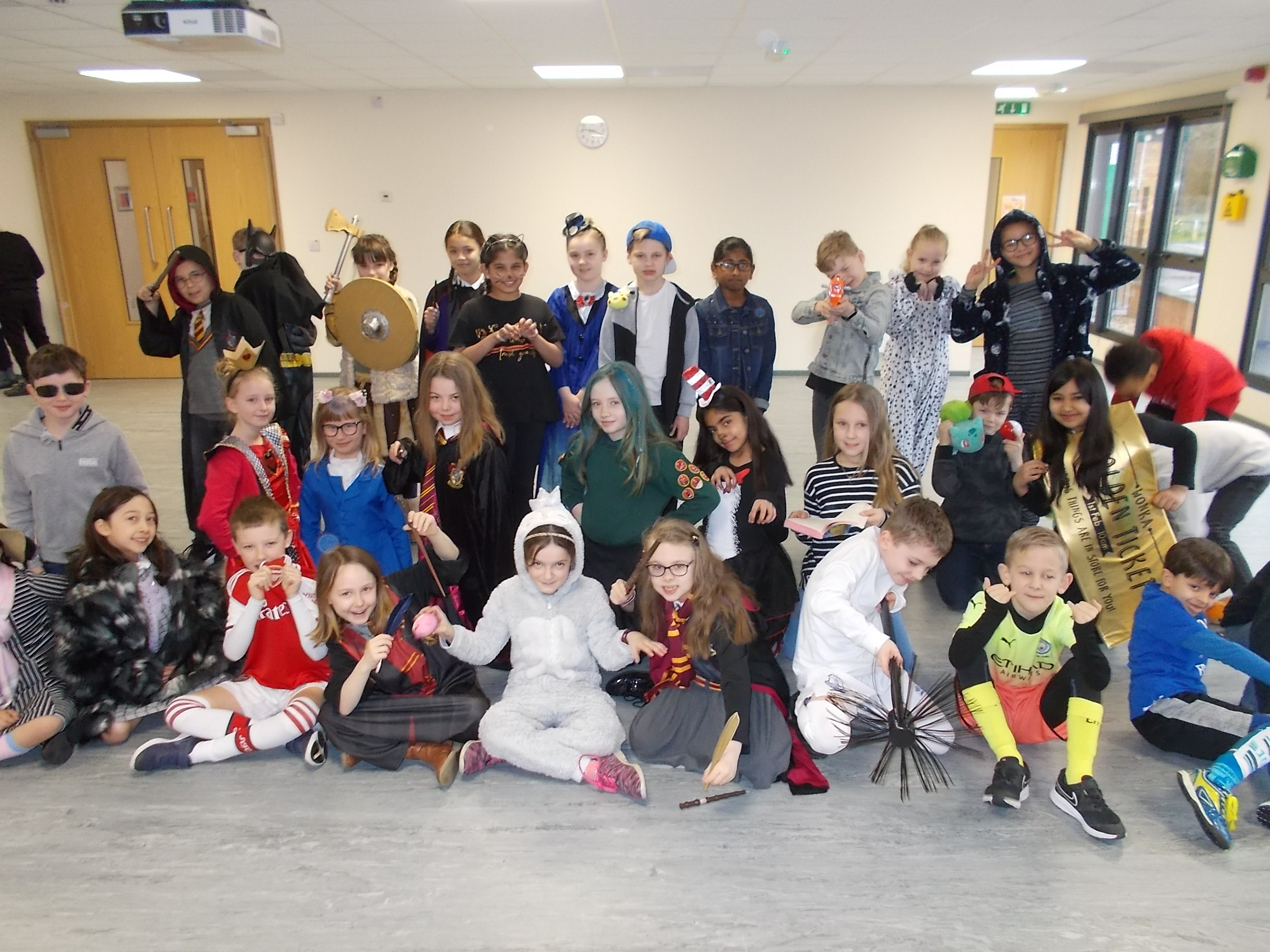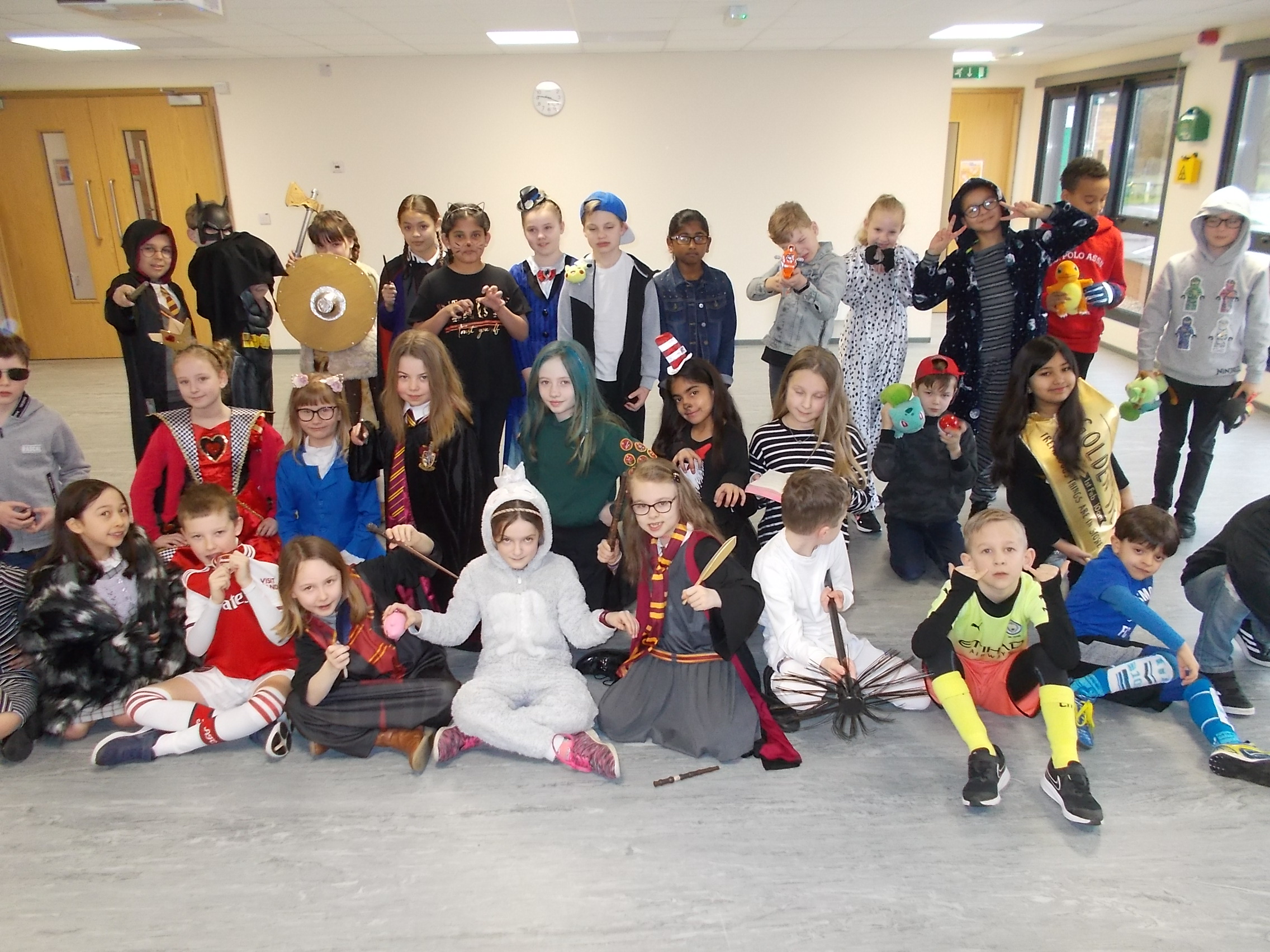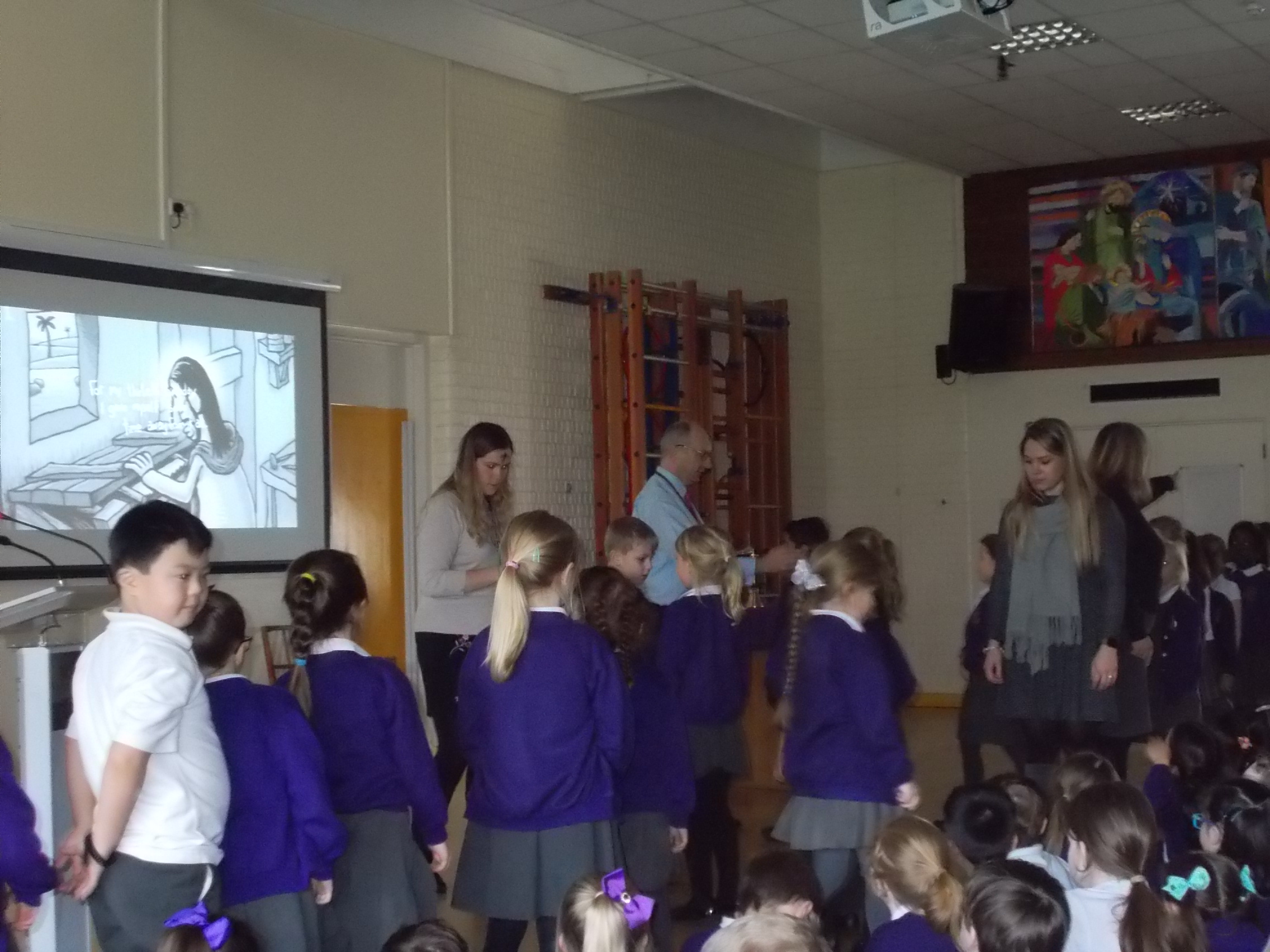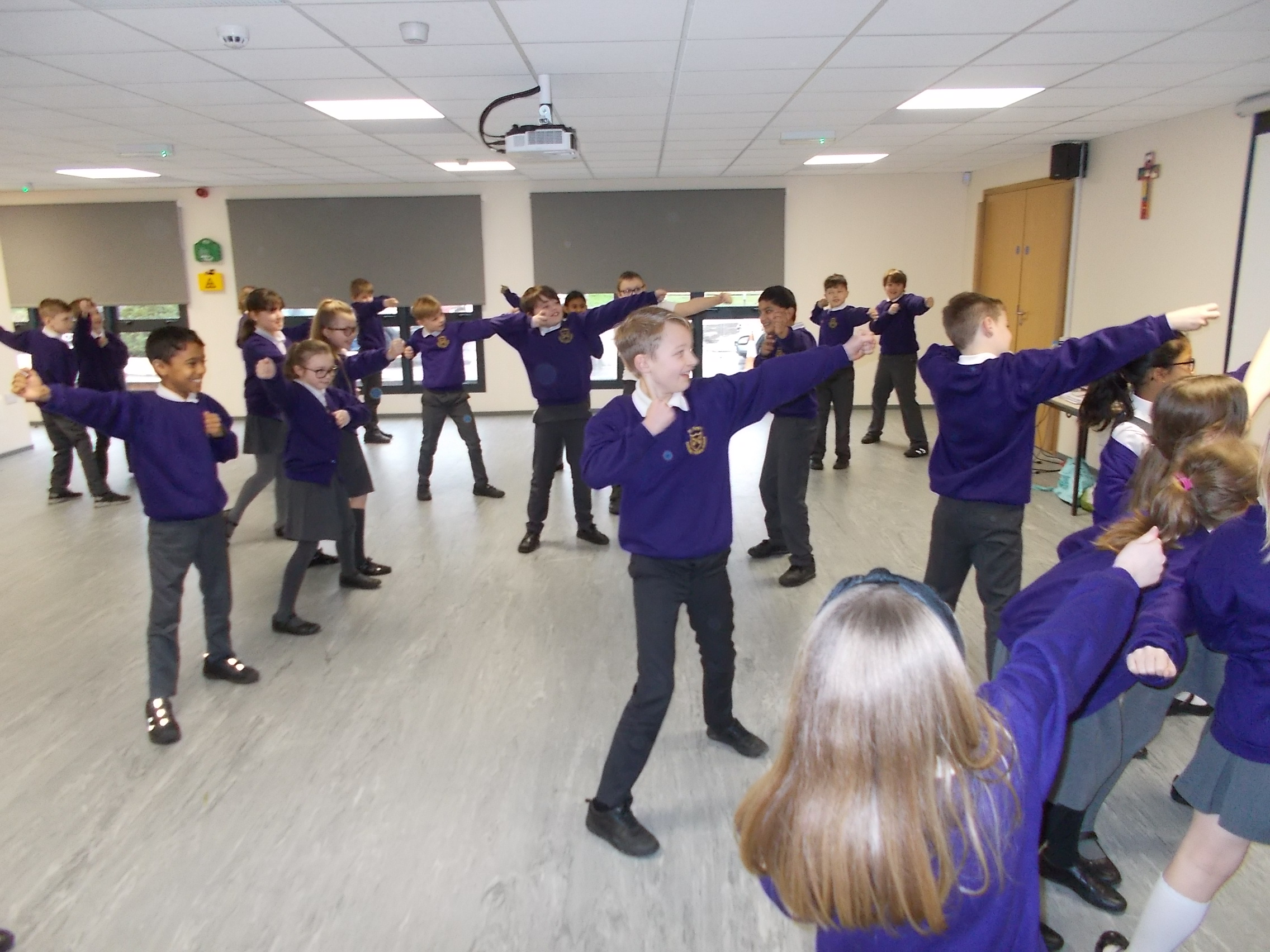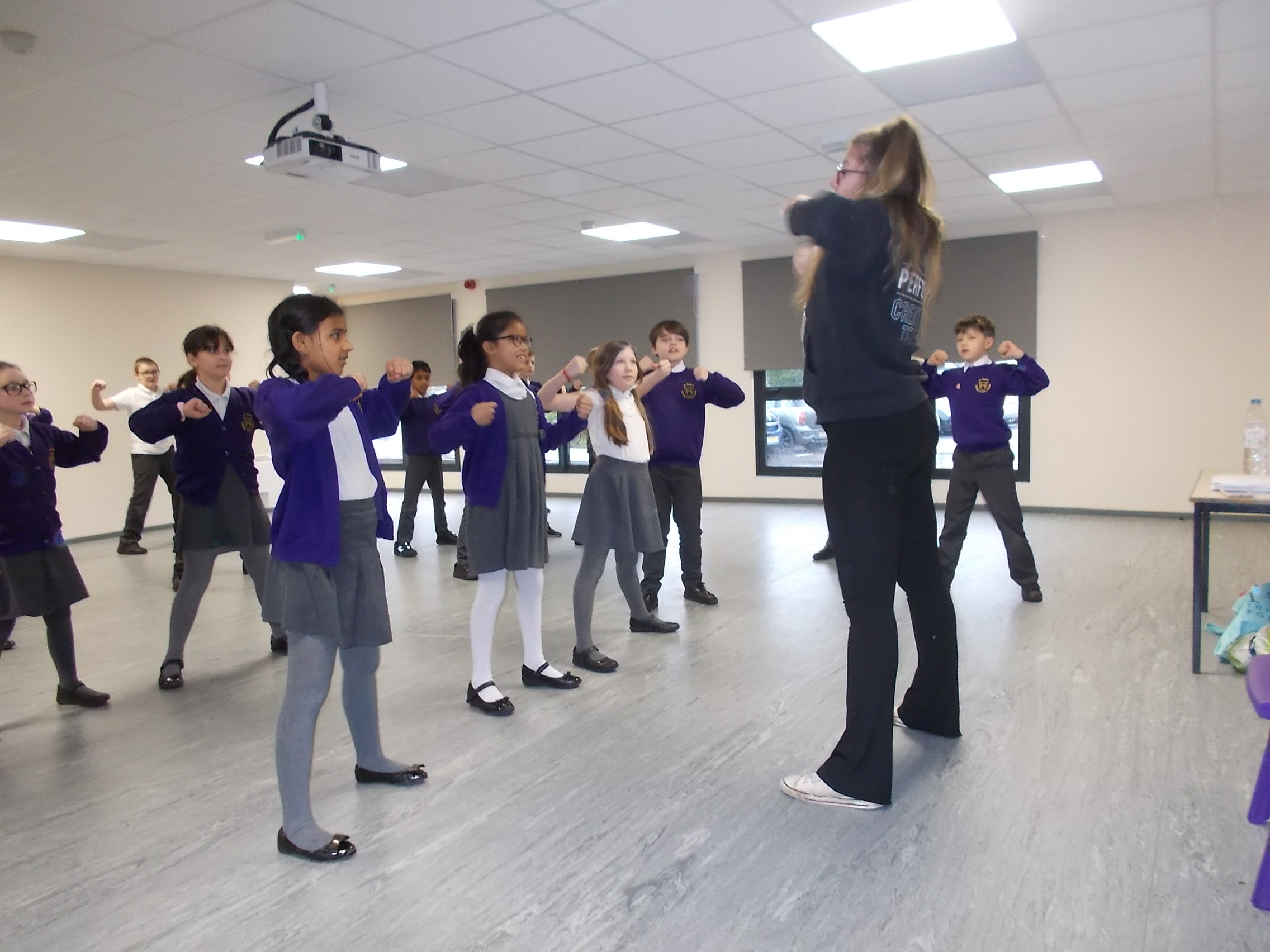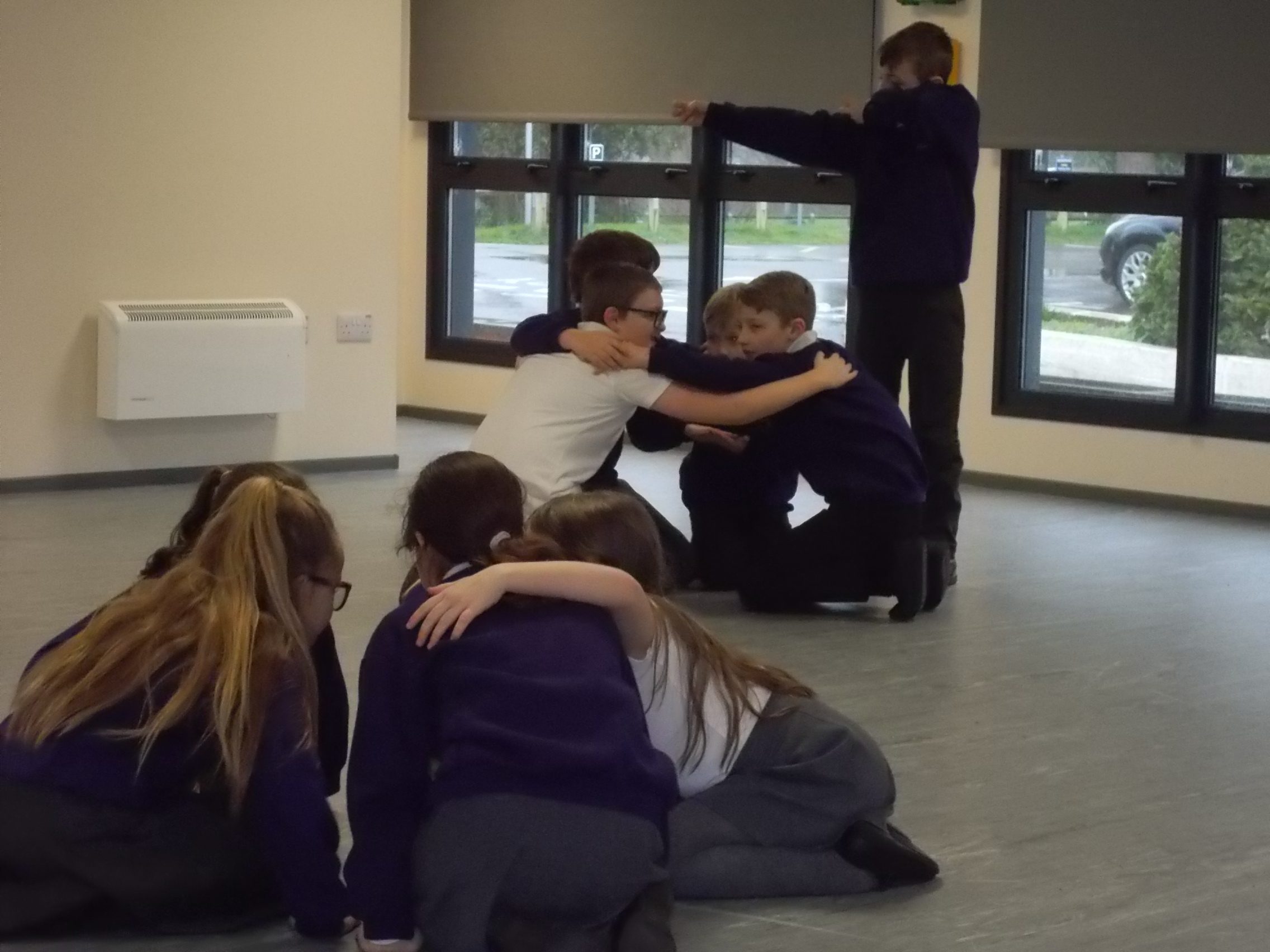Home Learning 27.03.2020
Reading comprehension
Please see attached the non- fiction report on Volcanoes. Answer the questions at the bottom of the sheet.
If you find any tricky words, highlight them and discuss with your grown ups or people at home to help you. Or you could make your own key word glossary.
In addition, please continue to read 20-30 minutes daily. Try and read a range of texts too.
Volcano Reading T-G-059-World-Volcanoes-Comprehension-Worksheets
Writing activity
Below is a link to a video showing a farmer planting windmills. As we have been studying different impacts on our environment, we would like you to research the effects of wind farms and write a non-bias news paper article about the different opinions people have on them. Please include: rhetorical questions (Did you know?), Casual conjunctions (consequently) and key statistics.
https://www.literacyshed.com/windmillfarmer.html
Spelling
This week, we would like you to practise the following Y3/4 spelling words from our list:
Island Describe Probably Favourite Perhaps
Pick one of the following strategies, to practise your words: rainbow write, graffiti wall, lego writing or spelling scribbles.
Please note: for those working on Y2 common exception words, use the following online word search instead (play using ‘single player’ mode).
https://www.spellzone.com/word_lists/games-32308.htm
Maths
As we have started our learning on multiplication and learning about associative law, this activity will help you practise your times tables and use your number sense to help you.
Using three dice (or picking 3 numbers from 1-6), put them together and see what sum combinations you can come up with. For example, if I rolled a 4,6,5 I could multiply (6 X 5) and then X4. Think about swapping the numbers, do you have the same answer? If not can you find the smallest and largest number.
Challenge: Can you use numbers 1-20. Think about using a multiplication grid to help you times 3 digit numbers if necessary.
Remember that Sumdog and Times Tables Rockstars have also been updated with activities.
Science
We have been learning about our digestive system! Here’s a science project to demonstrate the process of digestion.
https://www.bbc.co.uk/bitesize/topics/zf339j6/articles/zrm48mn
We are aware that some of us have already had fun with this project at school so if you want to show off all of your digestion knowledge, using play dough, drawings or recyclable objects around the house, can you make a 3D model of the oesophagus, stomach , small intestine and large intestine. As a challenge, research these body parts and find fun facts that you could label your model with.
Topic
Following on from our learning on earthquakes, please take a look on the following website and use the information to create your own Health and Safety poster, to inform people how to stay safe recover from an earthquake.
https://www.bbc.co.uk/bitesize/topics/z849q6f/articles/zj89t39
https://www.weatherwizkids.com/weather-safety-earthquake.htm
Art
This week I would like you to create something with a paper plate. Please don’t worry if you do not have one at home you can just draw around a plate and then cut it out.
I would like you to link it to the country that your Year Group is studying, so here are some ideas. However, any creation would be wonderful.
Please email a photo of your artwork to me and I will share it on the Art Blog.
Keep creating and keep safe!
Mrs Pearson
n.pearson@stpeterswaterlooville.hants.sch.uk
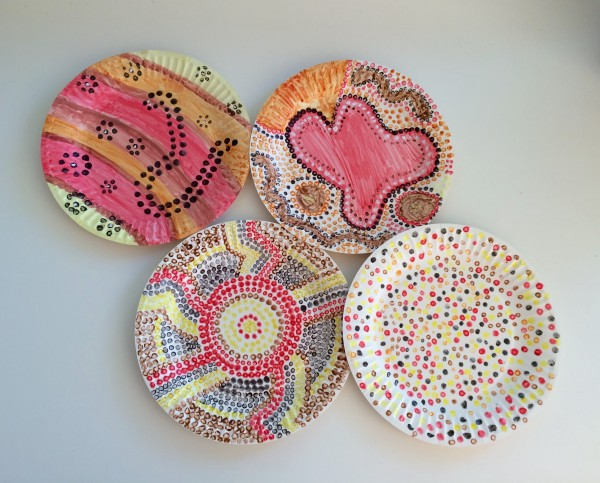
Australian Aboriginal Paper plate ideas
Tip! A cotton bud is a great way to make dots with paint.
Felt tip pens work well too, only don’t press too hard or you’ll damage the nib!
Home learning : 20.03.2020
Reading comprehension
Please see attached the non- fiction report on Earthquakes. Answer the questions at the bottom of the sheet.
- If it feels tricky, try the * sheet
- If you feel confident, try the ** sheet
- If you feel ready for a challenge, try the *** sheet
t2-e-2222-earthquakes-ks2-differentiated-reading-comprehension-activity_ver_1
In addition, please continue to read 20-30 minutes daily. Try and read a range of texts too.
Writing activity
Below is a link to a picture of a habitat that is in danger. As we have been writing passionately to Greta Thunberg about climate change recently, can you now apply those skills at home? Write a letter to persuade humans to treat animals with more respect. Please include: rhetorical questions, deforestation facts, causal conjunctions and time words.
http://www.pobble365.com/save-our-habitat
Spelling
This week, we would like you to practise the following Y3/4 spelling words from our list:
through thought favourite ought although enough
Pick one of the following strategies, to practise your words: rainbow write, pyramid or spelling staircase. Can you highlight the digraphs?
Please note: for those working on Y2 common exception words, use the following online word search instead (play using ‘single player’ mode).
https://www.spellzone.com/word_lists/games-32308.htm
Maths
As we have started our learning on multiplication, below is a link to a fun combination game. Think systematically to be effective and use the grid at the bottom of the webpage to draw out the ‘sets’ of coloured cups and saucers. If you are finding this tricky- change the problem to only white, red and blue cups then complete on a grid of 12 boxes. If you would like a challenge, add one extra colour and another row to your grid!
Remember that Sumdog and Times tables rockstars have also been updated with activities.
Science
We have been learning about teeth! Here’s a science project to reinforce the importance of tooth brushing: place an egg in vinegar for a couple of days, the vinegar will eat off the shell (tooth enamel). Can you record what you observe each day?
Pick one of the following tasks, the details of which can be found on the website below…
- Smiles collage (challenge: label each type of tooth you made)
- ‘Good food for my teeth’ poster (challenge: add a calcium fact)
https://www.childfun.com/themes/people/dental/#Dental_Arts_and_Crafts
Topic
Following on from our learning on volcanoes, please take a look on the following website and use the information to create your own Health and Safety poster, to warn people about the dangers of living near a volcano.
https://www.nationalgeographic.com/environment/natural-disasters/volcanoes/
Poetry Competition 2020
Hello,
We hope that you have had a good week so far and that you are enjoying the recent sunshine this Spring.
This week, we have started our new unit of learning on Volcano and Earthquake news reports. The children are very excited to work towards our final outcome – a video recording from each of our news teams, who shall be reporting on the natural disasters that have taken place in Hawaii. This week, we watched a series of news reports and studied a variety of published articles, in order to develop our vocabulary and build key word banks to help us describe the volcanoes and earthquakes in more detail. As the week progressed, we played a variety of ‘snap’ and ‘pairs’ card games, which enabled the children to develop their understanding of the meaning for each key word by matching these terms to a set of different images. By creating glossaries and performing news reports through Pie Corbett, both Year Four classes had developed their comprehension skills, with regards to the key words that shall be covered across this topic. Next week, we look forward to incorporating our new vocabulary within a range of sentence types.
Please see the picture below of a volcano that was produced as part of Home Learning:
In Maths, Year Four have been working hard on their learning of Time. For example, we have been learning how to tell analogue (12 hour) and digital (24 hour) time, whilst also recapping on how to convert between seconds, minutes and hours. In addition, we have been looking at how to use number bonds to 60 in order to calculate how many minutes are left of an hour, until the next hour on the clock is reached. Later on, the children used number lines to interpret and solve a range of tricky time interval problems. We were very impressed by the commitment and collaboration that had been demonstrated by each group of children. Next week, we look forward to completing our work on Time, before moving on to our next unit of learning: multiplication and division.
Today, our three competitors from Year Four took part in the St. Peter’s Poetry Competition 2020. We would like to congratulate our three poets for their exceptional performances in the event. Well done to Leo and Calin, and for Emi who won first place in the Year 3/4 category. We were very proud of you all!
Wishing you all a fantastic weekend,
Kind regards,
Miss Honeywell, Miss Jackson Nash and Mrs Cairns.
World Book Day
Hello,
We hope you all have had a lovely week and hopefully the sun will shine for us at the weekend.
This week it was fantastic to see all the amazing characters children dressed as for World Book Day. It really is a super way for children to share their favourite books and encourage others to read!
In English, year 4 all week have been perfecting and publishing their ‘Save the world’ letters and they are ready to send off to Greta Thunberg! For the next English unit, which will start on Monday, children will be investigating natural disasters in order to create a news report for the camera!
In Maths, Koalas have worked really hard perfecting addition and subtraction problems. We looked at a range of multi-step problems where they had to determine what steps to take first and what operation to use. Next week we will begin our next ‘Time’ unit and focusing on time intervals and crossing time boundaries (e.g. I baked a cake at 11.53 am and it took 16 minutes to cook. What time will it be ready?)
During science, each class created an entire set of human teeth! We used clay and modelling tools to discuss the shape of each tooth and how this would be suitable for its purpose. We discussed how incisors are used to bite, canines help us to shred meats and the (pre)molars allow us to chew foods. We then studied a set of animal photos and compared the types of teeth they had, before categorising each animal into carnivore, herbivore or omnivore. Not to forget the importance of keeping our teeth healthy and making our own coloured toothpaste!
Next Tuesday we will be learning all about how to stay safe in the kitchen and learn the skills of grating, chopping and peeling. We are hoping to create some veggie masterpieces just like these…
So if you have any leftover, uncooked vegetables from Sunday roast and dinners over the weekend, we would really appreciate it.
Quick reminders for the upcoming week,
Tuesday 10th March – Parent’s evening
Wednesday 11th March – Parent’s evening
Friday 13th March – Poetry of by heart competition (So if you’ve been chosen, do not forget to bring your props)
We hope you have a lovely weekend and we are looking forward to seeing you on Monday!
Miss Jackson-Nash, Miss Honeywell and Mrs Cairns
Beginning of Lent 2020
Hello,
We hope that you have all been having a good week so far and that you have been enjoying the moments of sunshine this weekend!
This week, the children took part in an Ash Wednesday service at St. Peter’s Catholic Primary school on Wednesday 26th February 2020. The service provided an excellent opportunity for our whole school community to join together in prayer and worship. Ashes were distributed as a symbol of God’s forgiveness of our sins, which enabled us to then embark upon our spiritual journey of 40 days and nights until the celebration of Easter. The children had behaved respectfully during this service and they were each able to make their own Lenten promises to Jesus during the calm moments of reflection across the service. Please see the photos below…
On Friday 28th February 2020, the children had an exciting visit from a children’s theatre and drama company. The Robin Hood workshop was a fun opportunity for the children to work in groups and take part in a variety of games and speaking and listening activities. In particular, Year Four enjoyed taking on the role of different characters in the story as the class created freeze frames for individual scenes. Please see photos of the workshop below…
In Maths, the children have been learning how to use a variety of different strategies to add three numbers together. Through the context of money and ‘cinema combination’ problems, both classes have been learning how to identify number bonds to 10p and 100p (or £1) across sets of numbers, using colouring pencils to ‘match’ bonds together to support the mental addition of money values in pence. Where the problem solving tasks involved the ‘carrying’ of numbers across tens or hundreds boundaries, each class then identified the ‘expanded column’ method as an appropriate strategy for solving 3-part addition sentences. As the week progressed, Year Four used metacognitive strategies such as ‘evaluate’ and ‘number talk’ to discuss the suitability of their chosen strategies for various challenge tasks that had involved the use of addition. Next week, we look forward to revisiting our learning on subtraction through the use of ‘smart jumps’ (e.g. 148 – 39 can be solved by calculating 148 – 40 + 1) and expanded column subtraction (including the use of exchanges for hundreds and tens values where necessary).
In English, the children have continued their learning on Climate Change. This week, Year Four have planned and drafted their persuasive letters to Greta – next week, we look forward to editing, publishing, then evaluating our final pieces of writing before posting them to Greta Thunberg! We have been delighted by the children’s awareness and interest towards matters such as Global Warming, the burning of Fossil Fuels, plastic waste in the sea and the rapid Deforestation of our Tropical Rainforests. As a result, our students have produced a selection of passionate and factual letters that shall no doubt encourage Greta Thunberg to continue her campaigns and encourage others around the world to take better care of the environment. We would like to say a big well done to all of the children in Year Four, for their excellent use of Climate Change key words, facts and statistics in their writing.
We look forward to seeing you all on Monday – don’t forget to complete your Spring Term Reading passports as well as your spelling, Sumdog and Times Table Rock star homeworks for this week!
With best wishes,
Miss Honeywell, Miss Jackson-Nash and Mrs Cairns.

